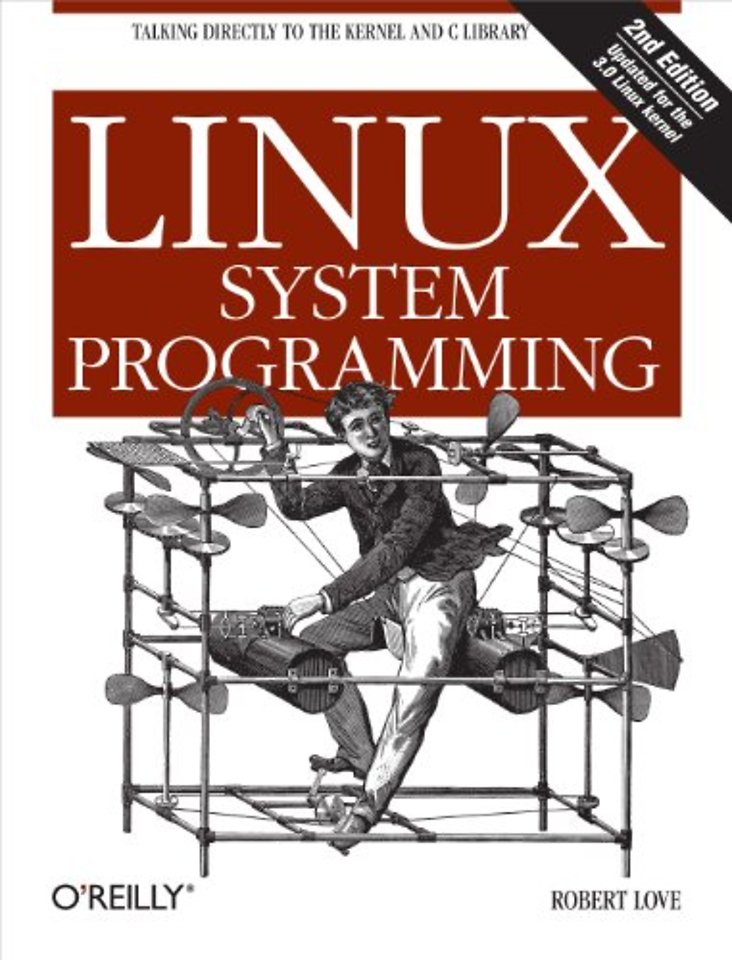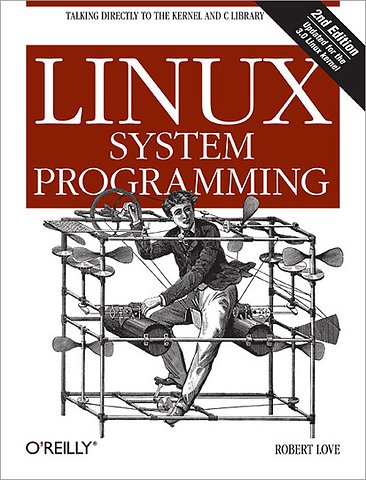


Robert Love has been a Linux user and hacker since the early days. He is active in--and passionate about--the Linux kernel and GNOME desktop communities.
Meer over Robert LoveLinux System Programming
Talking directly to the Kernel and C Library (Updated for the 3.0 Linux Kernel)
Samenvatting
Write software that draws directly on services offered by the Linux kernel and core system libraries. With this comprehensive book, Linux kernel contributor Robert Love provides you with a tutorial on Linux system programming, a reference manual on Linux system calls, and an insider's guide to writing smarter, faster code.
Love clearly distinguishes between POSIX standard functions and special services offered only by Linux. With a new chapter on multithreading, this updated and expanded edition provides an in-depth look at Linux from both a theoretical and applied perspective over a wide range of programming topics, including:
- A Linux kernel, C library, and C compiler overview
- Basic I/O operations, such as reading from and writing to files
- Advanced I/O interfaces, memory mappings, and optimization techniques
- The family of system calls for basic process management
- Advanced process management, including real-time processes
- Thread concepts, multithreaded programming, and Pthreads
- File and directory management
- Interfaces for allocating memory and optimizing memory access
- Basic and advanced signal interfaces, and their role on the system
- Clock management, including POSIX clocks and high-resolution timers
Specificaties
Inhoudsopgave
Preface
1. Introduction and Essential Concepts
-System Programming
-APIs and ABIs
-Standards
-Concepts of Linux Programming
-Getting Started with System Programming
2. File I/O
-Opening Files
-Reading via read()
-Writing with write()
-Synchronized I/O
-Direct I/O
-Closing Files
-Seeking with lseek()
-Positional Reads and Writes
Truncating Files
-Multiplexed I/O
-Kernel Internals
-Conclusion
3. Buffered I/O
-User-Buffered I/O
-Standard I/O
-Opening Files
-Opening a Stream via File Descriptor
-Closing Streams
-Reading from a Stream
-Writing to a Stream
-Sample Program Using Buffered I/O
-Seeking a Stream
-Flushing a Stream
-Errors and End-of-File
-Obtaining the Associated File Descriptor
-Controlling the Buffering
-Thread Safety
-Critiques of Standard I/O
-Conclusion
4. Advanced File I/O
-Scatter/Gather I/O
-Event Poll
-Mapping Files into Memory
-Advice for Normal File I/O
-Synchronized, Synchronous, and Asynchronous Operations
-I/O Schedulers and I/O Performance
-Conclusion
5. Process Management
-Programs, Processes, and Threads
-The Process ID
-Running a New Process
-Terminating a Process
-Waiting for Terminated Child Processes
-Users and Groups
-Sessions and Process Groups
-Daemons
-Conclusion
6. Advanced Process Management
-Process Scheduling
-The Completely Fair Scheduler
-Yielding the Processor
-Process Priorities
-Processor Affinity
-Real-Time Systems
-Resource Limits
7. Threading
-Binaries, Processes, and Threads
-Multithreading
-Threading Models
-Threading Patterns
-Concurrency, Parallelism, and Races
-Synchronization
-Pthreads
-Further Study
8. File and Directory Management
-Files and Their Metadata
-Directories
-Links
-Copying and Moving Files
-Device Nodes
-Out-of-Band Communication
-Monitoring File Events
9. Memory Management
-The Process Address Space
-Allocating Dynamic Memory
-Managing the Data Segment
-Anonymous Memory Mappings
-Advanced Memory Allocation
-Debugging Memory Allocations
-Stack-Based Allocations
-Choosing a Memory Allocation Mechanism
-Manipulating Memory
-Locking Memory
-Opportunistic Allocation
10. Signals
-Signal Concepts
-Basic Signal Management
-Sending a Signal
-Reentrancy
-Signal Sets
-Blocking Signals
-Advanced Signal Management
-Sending a Signal with a Payload
-A Flaw in Unix?
11. Time
-Time's Data Structures
-POSIX Clocks
-Getting the Current Time of Day
-Setting the Current Time of Day
-Playing with Time
-Tuning the System Clock
-Sleeping and Waiting
-Timers
Appendix A: GCC Extensions to the C Language
Appendix B: ibliography
Index
Anderen die dit boek kochten, kochten ook
Net verschenen
Rubrieken
- aanbestedingsrecht
- aansprakelijkheids- en verzekeringsrecht
- accountancy
- algemeen juridisch
- arbeidsrecht
- bank- en effectenrecht
- bestuursrecht
- bouwrecht
- burgerlijk recht en procesrecht
- europees-internationaal recht
- fiscaal recht
- gezondheidsrecht
- insolventierecht
- intellectuele eigendom en ict-recht
- management
- mens en maatschappij
- milieu- en omgevingsrecht
- notarieel recht
- ondernemingsrecht
- pensioenrecht
- personen- en familierecht
- sociale zekerheidsrecht
- staatsrecht
- strafrecht en criminologie
- vastgoed- en huurrecht
- vreemdelingenrecht





